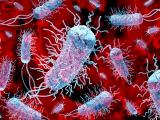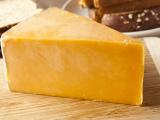Jan 2, 2007 (CIDRAP News) The Canadian Food Inspection Agency (CFIA) recently gave preliminary approval for field use of the world's first vaccine to reduce Escherichia coli O157:H7 in cattle and thereby help keep it out of food.
Bioniche Life Sciences, Belleville, Ont., reported in a Dec 22 news release that it received CFIA approval to distribute its E coli vaccine to Canadian veterinarians. The approval, called a permit to release veterinary biologics, is similar to a conditional license in the United States.
To receive full licensure, the company must provide additional data confirming reductions in E coli O157 shedding in vaccinated animals, the company said.
"Bioniche believes that this vaccine will be an important factor in helping to reduce the prevalence of this toxic bacterium, first implicated in meat contamination and now being increasingly identified as a contaminant of produce," said Graeme McRae, president and chief executive office of Bioniche, in the press release.
Several outbreaks of E coli O157:H7 have been linked to leafy greens in recent years, including two high-profile events in 2006one that involved fresh spinach and another traced to lettuce served at Taco Bell restaurants in the eastern United States. In the spinach outbreak, authorities expressed concern about the proximity of cattle pastures to growing areas.
In 1993, a nationwide E coli O157:H7 outbreak linked to hamburger served at Jack in the Box restaurants led to changes in how cattle were slaughtered and processed.
The O157:H7 E coli strain doesn't sicken cattle, but in humans it produces a toxin that causes diarrhea, often bloody, and abdominal cramps, but typically no fever. The illness usually resolves in 5 to 10 days but can cause hemolytic uremic syndrome, a potentially fatal form of kidney failure, in 2% to 7% of patients.
The vaccine was developed jointly by the University of British Columbia, the Vaccine and Infectious Diseases Organization of the University of Saskatchewan, and the Alberta Research Council. In clinical trials conducted by the University of NebraskaLincoln, cattle that received 2 doses of the vaccine had 75% lower prevalence of E coli O157:H7, according to Bioniche. A 3-dose regimen was associated with a 98.3% reduction in prevalence.
Jennifer Shea, corporate communications manager at Bioniche, told CIDRAP News that the provisional approval allows the company to make information available to veterinarians and the cattle industry, but it cannot yet launch a marketing campaign. She said the price for a course of the vaccine hasn't been determined yet, but is expected to be less than $10 per head of cattle.
Bioniche is preparing to seek regulatory approval from the US Department of Agriculture, but it's difficult to predict when the product might be licensed in the United States, Shea said. "This cattle vaccine is so unique because the cows aren't the ones who are sick. This is being done to protect human health," she added.
In a September 2006 National Public Radio (NPR) report, Terry Klopfenstein, PhD, an animal science professor and researcher involved in the cattle E coli studies at the University of NebraskaLincoln, said marketing the vaccine to cattle producers might be challenging because they might not see an economic benefit in it. "There is no direct benefit because the cattle will not gain faster, they'll not do it more efficiently; the meat won't taste any better," he told NPR.
However, he said the vaccine would benefit producers by making the beef safer and reducing the risk of spreading contaminated manure.
See also:
Dec 22 Bioniche press release
http://www.bioniche.com/news_item.cfm?id=2130
















